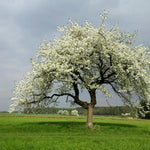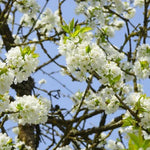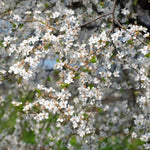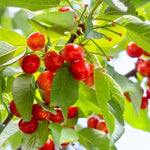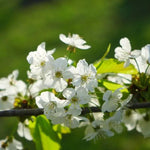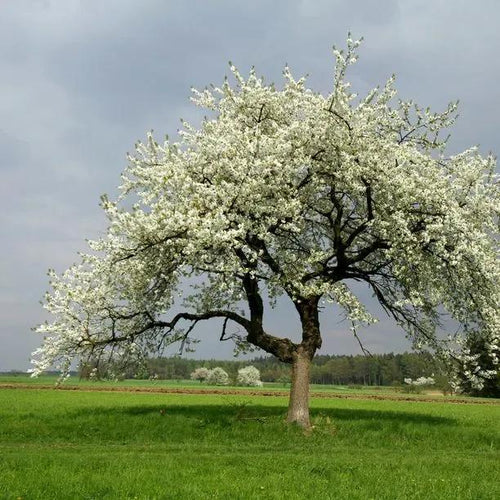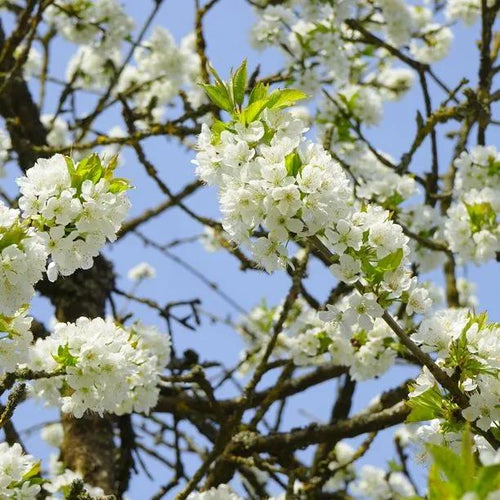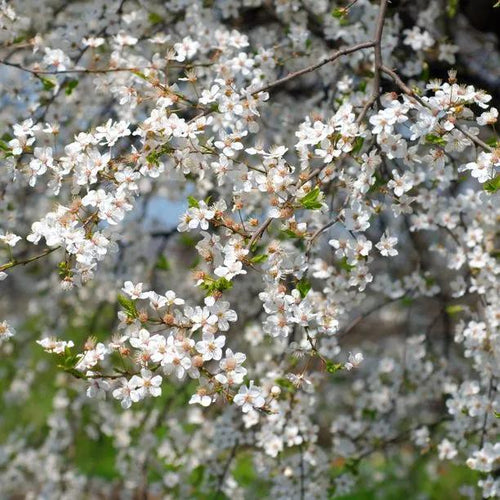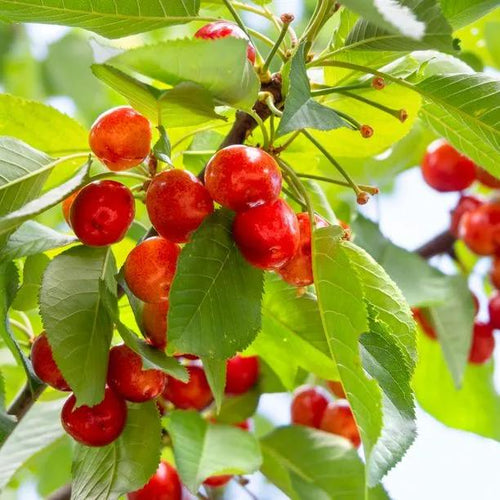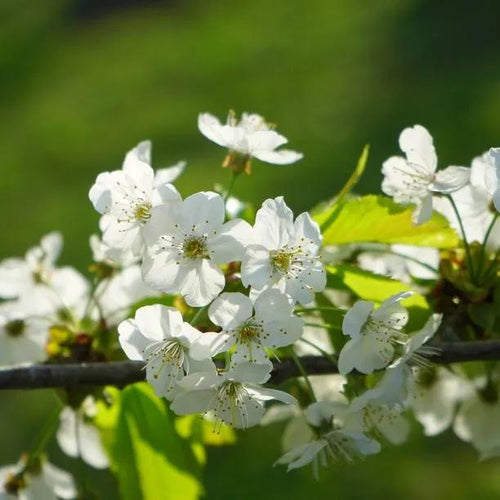 Delivered across the UK
Delivered across the UK Which Best Plant Supplier 2025
Which Best Plant Supplier 2025 1 Year Bareroot Plant Guarantee
1 Year Bareroot Plant Guarantee
About Native Wild Cherry Trees
Native Wild Cherry Trees
Wild Cherry trees are large native plants with white blossom in spring and edible fruit. It has profuse white flowers in early spring, appearing at the same time as the young green and bronze leaves. The Autumn colour is orange and red.
Prunus avium is a tall, wide spreading tree with a suckering habit that can reach a height of about 20-25 metres.
Browse our other varieties of wild and ornamental cherry blossom trees, edible cherry trees, or all our fruit trees.
Delivery season: Wild cherry trees are delivered bareroot during late autumn and winter, approximately November-March inclusive.
Choosing a size: Small trees are cheaper, easier to handle and more forgiving of less than ideal aftercare, so they're best for a big planting project. If instant impact is your priority, or if you are only buying a few plants for use in a place where it's convenient to water them well in their first year, then you may as well use bigger ones. All our bareroot trees are measured by their height in centimetres above the ground (the roots aren't measured).
Features
- Height: 20-25m
- Soil: Any decently drained. Likes chalk
- Use: Specimen, avenue, nectar for bees
- Colour: White flowers in April
- Great wildlife value
- Bareroot delivery only: November-March
Growing Wild Cherry Trees
Suitable for any decently drained soil, in the wild they thrive most on alkaline, sandy sites in full sun. It's highly tolerant of pollution.
Always prune cherry and plum trees in late summer if possible.
History & Trivia
Modern sweet cherries were bred from this tree's ancestors. Avium typically means birds in Latin, but it also refers to wild places; the Bird Cherry is Prunus padus.
It is a short-lived tree that typically goes into decline by the time it is 70 years old.
Common names include gean (in Scotland), crab cherry, hagberry and mazzard, and merry tree.
Standard trees are measured by their girth in centimetres 1 metre above ground level: their trunk's waist measurement. Unlike sapling trees and hedge plants, standards aren't measured by their height, which will vary quite a bit both between and within species.
So, a 6/8cm standard tree has a trunk with a circumference of 6-8cm and an 8/10 standard has a trunk 8-10cm around. This measurement makes no difference to the tree's final height.
On average, standard trees are 2-3.5 metres tall when they arrive, but we cannot tell you precisely how tall your trees will be before we deliver them.












 Secure, One-Tap Checkout
Secure, One-Tap Checkout
 Hand Picked, Delivered to Your Door!
Hand Picked, Delivered to Your Door! 1 Year Bareroot Guarantee
1 Year Bareroot Guarantee